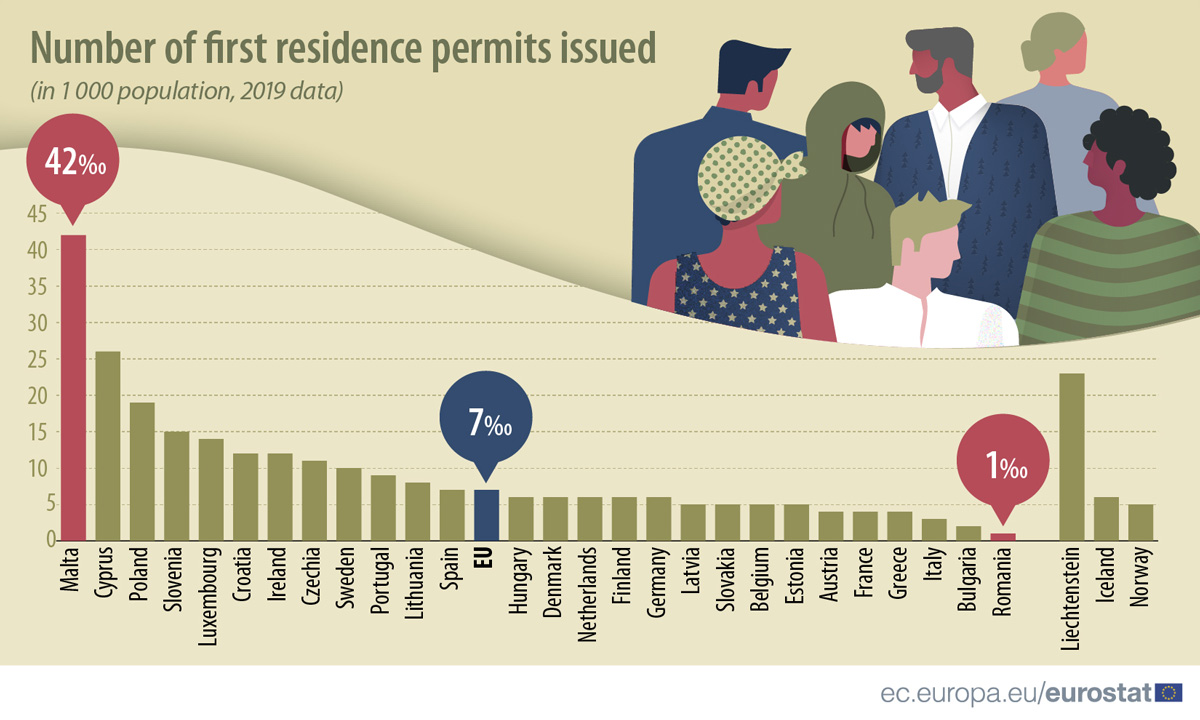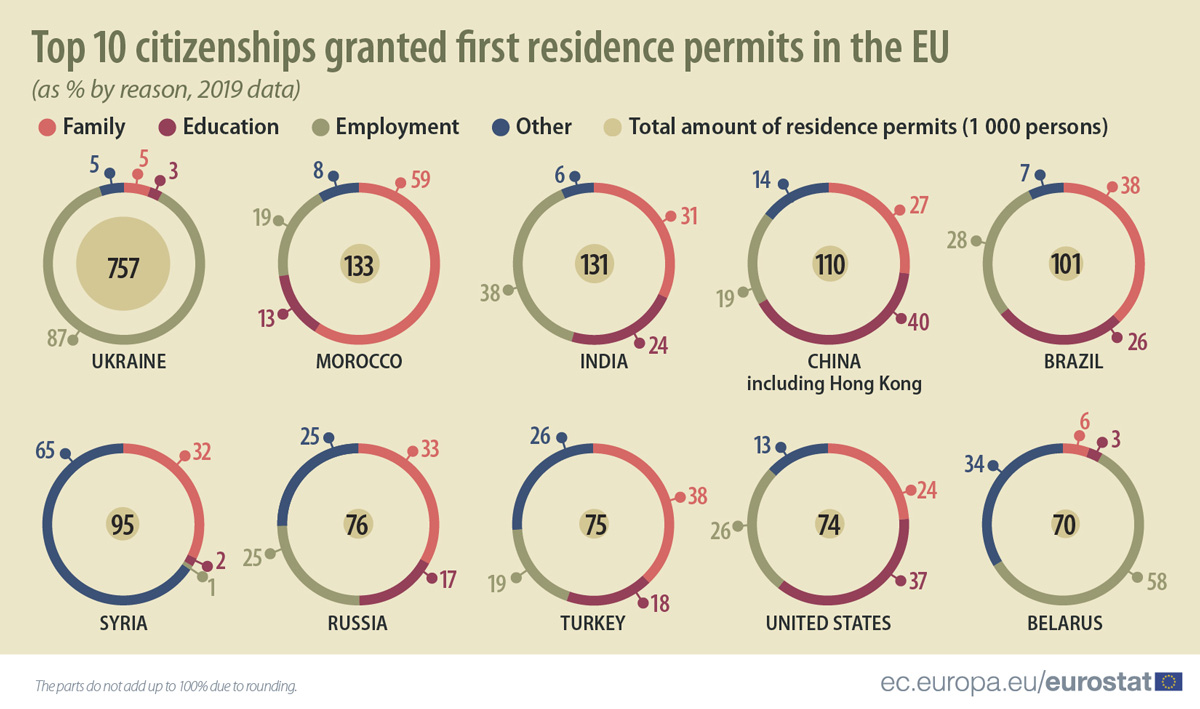About 3 million first residence permits were issued in the EU to non-EU citizens in 2019. The number rose by 6% (or 163,000 compared with 2018, continuing the upward trend observed since 2013, according to the latest data released by the statistical office of the European Union (Eurostat).
The year-on-year increase in the total number of first residence permits was mainly driven by the increasing number of first permits issued for employment reasons (up by 214 000, or 22%).
Employment-related reasons accounted for 41% of all first residence permits issued in the EU in 2019, family reasons for 27%, education reasons for 14%, while other reasons, including international protection, accounted for 18%.
For the EU as a whole, 7 first residence permits were issued per 1000 population in 2019. However, the numbers show that not all countries were equally generous in granting permits for immigrants.
Compared with the population of each Member State, the highest rate of first permits issued in 2019 was recorded in Malta (42 permits issued per 1000 population), ahead of Cyprus (26), Poland (19), Slovenia (15) and Luxembourg (14).

Source: Eurostat.
Finland granted 31,868 permits
According to Eurostat, Finland fell below the European average of 7 per 1,000 by granting just 31,868 first residence permits in 2019.
Of the permits granted, about half (15,137) were given for work-related reasons. The Finnish Immigration Service (Migri) also granted 9,601 permits for family reasons, 5,194 for educational reasons and 1,936 permits for other reasons (including asylum or other forms of international protection).
In absolute numbers, Poland stands out as the country that granted the most permits in 2019. According to Eurostat, the Polish immigration authorities issued a quarter of all first residence permits granted in the EU to non-EU citizens (724,000, or 25% of total permits issued in the EU).
Next on the list were Germany (460,000, or 16%), Spain (320,000, or 11%), France (285,000, or 10%), Italy (176,000, or 6%) and Czechia (117,000, or 4%).
Poland for work, France for study
Poland topped the list of employment-related first residence permits, with 625 000 permits issued in 2019 (of which 551 000 were issued to Ukrainians), making up 52% of all first permits for employment reasons issued in the EU.
France issued the most education-related permits (90 000 permits, or 23%), ahead of Germany (61 000, or 15%).
The Member States with the highest number of permits issued for family reasons in 2019 were Germany (167 000, or 21%), Spain (144 000, or 18%), Italy and France (respectively 101 000 and 98 000, or 12% each).
Germany was also the top country in the EU for other reasons with 166 000 permits (30%) issued in 2019, of which the majority were for refugee status and subsidiary protection (90 000) and protection for humanitarian reasons (43 000).
Main recipient nationalities
757,000 Ukrainians received first residence permits in the EU Member States in 2019, making them the largest citizenship group among all recipients. Almost four out of five of these permits were issued by Poland. Citizens of Morocco (133,000 permits, of which 47% were issued in Spain) and India (131,000, of which 19% in Germany) followed.
Citizens of these countries accounted for over one-third (35%) of all first residence permits issued in 2019.
 Source: Eurostat.
Source: Eurostat.
Among the top 10 citizenships granted permits in the EU in 2019, employment was the main reason for permits issued to Ukrainians, accounting for 87% of all first residence permits issued to Ukrainians, and Belarusians (58%).
Family was the prevailing reason for permits granted to Moroccans (59%), and education for permits issued to Chinese (40%) and citizens of the United States (37%).
Other reasons, namely refugee status and subsidiary protection, were predominant for Syrians (65%).








